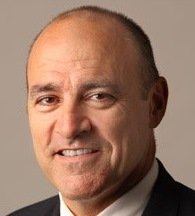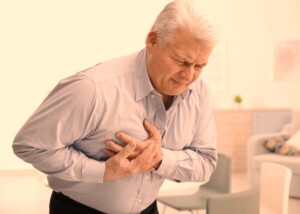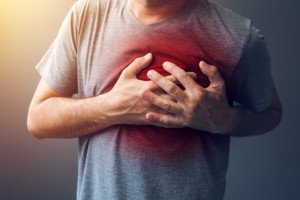
You’d better believe that warning signs almost always exist for future heart attack.
The warning signs are there; you just have to know how to spot them!
A heart attack is serious business; how could this not have warning signs?
Is calling coronary artery disease “the silent killer” misleading and inaccurate?
Here is what a doctor says, regarding warning signs of a future (not imminent) heart attack:
“Not 100 percent, but 98 percent of people are getting warnings they ignore,” begins Michael Fiocco, MD, Chief of Open Heart Surgery at Union Memorial Hospital in Baltimore, Maryland, one of the nation’s top 50 heart hospitals.
“Short of breath, shoulder pain, fatigue, etc., are what we call ‘angina equivalents.’ The human brain has a remarkable ability to deny.
“Can’t tell you how many patients I ask if they have had any chest pain who say, ‘No,’ who five minutes later will say, ‘Well, I did have some tightness,’ or, ‘I did have some pressure,’ but it wasn’t chest ‘pain.’”
Some warning signs that a heart attack lies in wait down the road may seem quite innocent, while others are scary, like chest pain and shortness of breath.
However, denial is rampant even among, as Dr. Fiocco says, people with chest discomfort.
If you’re tuned into your body, you should be able to detect when something isn’t right.
If you’re familiar with all the possible warning signs of future heart attack, then your coronary artery disease won’t be so “silent.”
Did you know that shoulder pain can be a warning sign of future heart attack? Few people make this connection.
But what about the more obvious, like shortness of breath and fatigue?
Well, there’s a problem here, too: These are built-in symptoms of aging in a person who doesn’t exercise!
My brother’s coworker, for several years, had noticed a decline in energy, increased fatigue, and shortness of breath. The middle-aged man chalked it up to getting older and lack of exercise.
He never considered that these symptoms were warning signs of a future heart attack. He had the heart attack and underwent quadruple bypass.
Fast-forward well-beyond total recovery: This man scuba dives and says he feels 20 years younger!
Did you know that insomnia or trouble sleeping in older women can be a warning sign of future heart attack?

Shutterstock/Supawadee56
Few people make this connection. Feelings of impending doom (for no apparent reason), plus panic attacks, can also signal a future heart attack in women.
Coronary artery disease does not progress overnight.
Because of the slow progression, it mimics the aging process, especially in people who already know they’re out of shape due to lack of exercise, overweight or smoking.
Of course I’m short of breath, the obese person or smoker might think, or someone who never exercises will conclude.
Of course I’m short of breath, a 60-year-old may reflect while huffing and puffing up a short hill. I’m not as young as I used to be!
Chest pain has many causes including indigestion. A person with a big appetite may easily pass chest pain off as heartburn.
A chronically stressed-out individual may attribute chest pain or tightness to anxiety, especially since anxiety and stress are common causes of chest discomfort.
So how do you differentiate warning signs of future heart attack, from normal signs of aging, stress or effects of overweight, smoking or indigestion?
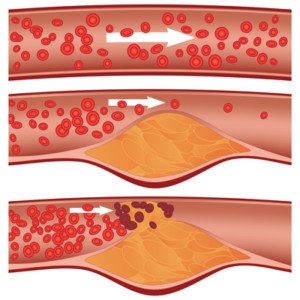
A soft-plaque rupture; can cause a heart attack. Shutterstock/Diamond_Images
The person with unhealthy lifestyle habits really can’t, if the symptoms are things like:
- Shortness of breath (which can be caused by gastroesophageal reflux disease)
- Fatigue
- Chest discomfort
- Shoulder pain (which, if caused by coronary artery disease, can easily masquerade as a rotator cuff problem or arthritis in someone with past legitimate shoulder problems).
It’s much easier to realize that something is wrong with your body if you’ve always performed strenuous exercise, and then for no apparent reason, find your performance deteriorating.
But the more out-of-shape you are, the more that warning signs of future heart attack will fade into your profile and be camouflaged by the aging process, stress, excess weight, poor sleep (of course I’m tired all the time!), etc.
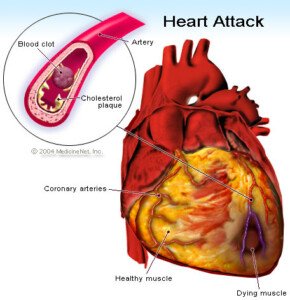
Make an appointment with a cardiologist and tell the doctor your symptoms, no matter how trite they may seem.
Inquire about imaging tests and stress tests.
A cardiologist cannot rule out imminent or future heart attack based on only an EKG, stethoscope exam, feeling your chest, blood pressure reading, heart rate, absence of family history of heart disease, absence of personal history of smoking, or some questionnaire about your eating and exercise habits!
